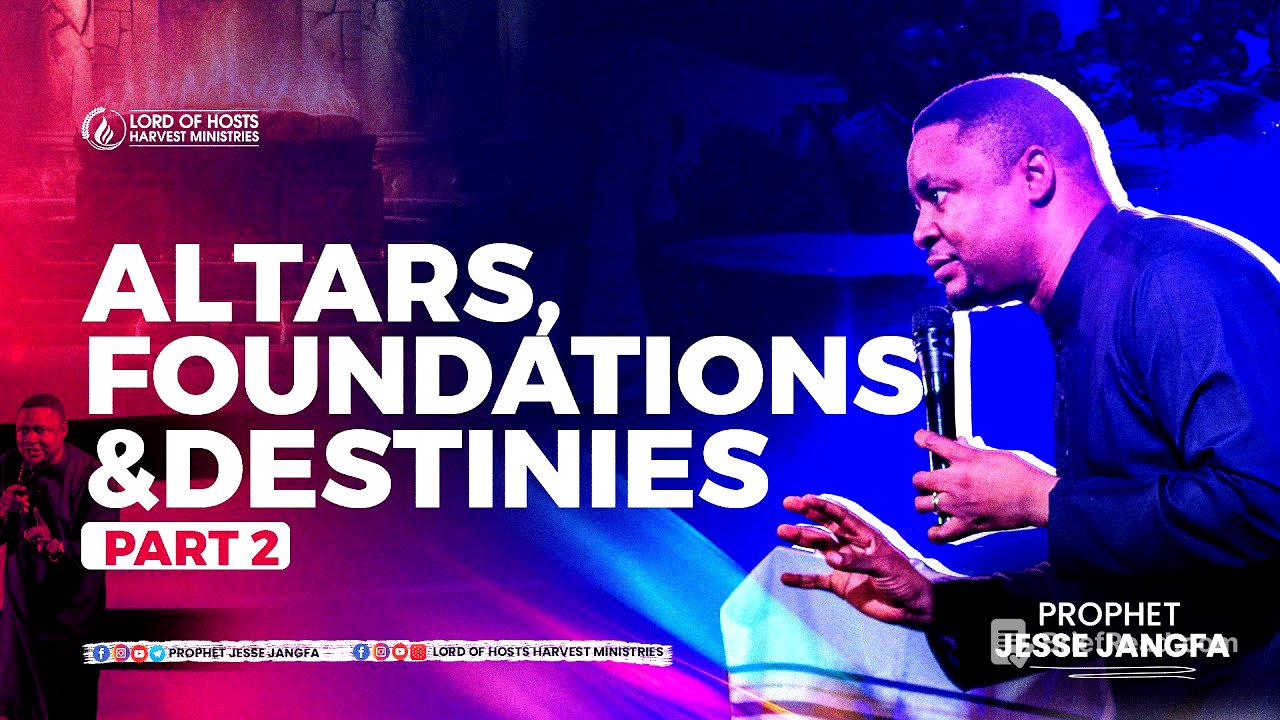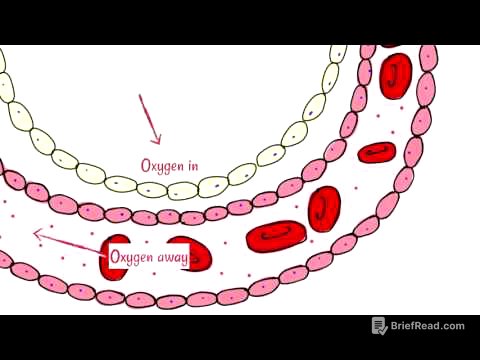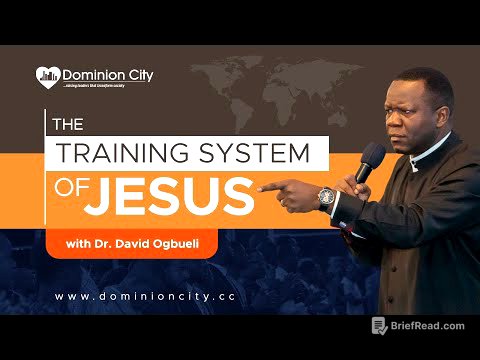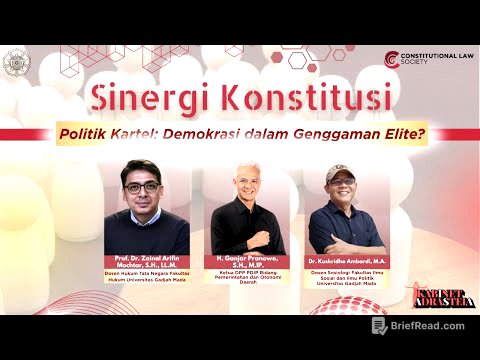TLDR;
This YouTube video by Prophet Jesse Jangfa discusses the importance of dealing with faulty foundations and evil altars to fulfil one's destiny. It explains how spiritual foundations, whether godly or demonic, influence a person's life and how unaddressed demonic influences can hinder progress. The sermon emphasises the need for knowledge and power to overcome these hindrances, highlighting the role of the blood of Jesus, the word of God, and the Holy Spirit as key witnesses in spiritual warfare.
- Foundations can be godly or demonic and influence destiny.
- Faulty foundations and evil altars give the enemy legal ground to resist.
- Deliverance comes through knowledge and power, engaging the truth of the word.
- The blood of Jesus, the word of God, and the Holy Spirit are key witnesses in spiritual warfare.
Introduction and Prayer [0:09]
The video begins with a worship session, followed by a prayer for recovery, deliverance, and restoration of God's people. The prayer requests that any ground conceded to the enemy be recovered, gates manned by the enemy be opened, and the hand of the enemy be broken. It also asks for new levels of victory, deliverance, and restoration, and for the heritage of Zion to be recovered.
Foundations and Their Impact [4:20]
The sermon starts by defining a foundation as the bedrock upon which a structure is built, drawing a parallel to spiritual foundations. A spiritual foundation is described as the early spiritual exposure or hereditary spiritual roots a person has, which can be either godly Christian truths and values or demonic and satanic practices. Timothy and Gideon are used as examples to illustrate the impact of godly and evil foundations on destiny.
Dealing with Faulty Foundations [11:56]
The importance of addressing faulty foundations and demonic altars is highlighted to prevent the enemy from gaining legal ground to resist and hinder one's destiny. Using Zechariah 3:1 as a reference, it's explained that iniquity provides Satan with an opportunity to resist. The sermon stresses the need to fix faulty foundations and confront demonic altars to move forward in life.
The Role of Righteousness and Iniquity [13:35]
Referencing Psalms 11:2-3, the preacher explains that the wicked are always ready to attack the upright in heart, making it crucial for the righteous to pay attention to their foundation. Sins, iniquity, and evil altars can create legal premises for the enemy to attack. Building a foundation upon righteousness is essential for strength, stability, and durability in life.
Godly vs. Demonic Foundations [19:27]
The sermon distinguishes between godly and demonic foundations, referencing Matthew 7 to illustrate how a foundation determines the sustainability of a person's life. Building one's life on the integrity of the word ensures stability, while building on human philosophies or doctrines of devils cannot stand the test of time. For believers, the foundation is the word of God, obedience, and prayer.
The Influence of Ancestry [24:54]
The teaching addresses the influence of ancestry on one's life and destiny, explaining that while being born again regenerates the spirit, ancestral bloodlines can still carry traits and iniquities. Science, through epigenetics, acknowledges the transfer of inheritance across bloodlines. Lamentations 5:7 is cited to show how the sins of ancestors can affect future generations.
Knowledge vs. Power in Deliverance [29:08]
The preacher emphasises that permanent deliverance comes through knowledge, referencing John 8:32. While power is important, understanding the truth is essential for lasting freedom. Proverbs 11:9 and Hebrews 4:6 are used to illustrate that knowledge is crucial for the righteous to be delivered from captivity.
Spiritual Identification and Covenants [34:10]
The concept of spiritual identification is explored, explaining how the sins of ancestors can become the inheritance of their descendants. Leviticus 26 is referenced to show how God punishes children for the iniquities of their fathers. Hebrews 7 is used to illustrate how Levi paid tithes in Abraham's loins, demonstrating spiritual identification in the divine order.
Satan's Accusations and Legal Grounds [40:45]
The sermon explains that while God doesn't judge people for their fathers' sins in the New Testament, Satan, as a rebel, still seeks legal grounds to attack. Unrepented sins and transgressions create doors for Satan to enter. The degree of violation determines the level of captivity, with certain sins like shedding human blood and idolatry empowering the devil.
Lawful Captivity and Deliverance [55:48]
Isaiah 49:24-26 is referenced to explain the concept of lawful captivity, where people are taken captive due to their sins or the sins of their ancestors. In such cases, even the children of the captive become captives. The sermon highlights that certain iniquities and transactions make people lawful captives, and Satan is the one who takes people captive, not God.
Breaking the Edge and the Serpent's Bite [1:00:17]
Ecclesiastes 10:8 is used to explain that breaking an edge allows the serpent to bite. Genesis 3:14 is referenced to show that Satan has authorisation to eat dust, meaning he can bite the flesh (material part) of those who break edges. While Satan cannot bite the spirit of a new creation, he can affect their earthly existence.
The Brazen Serpent and the Cross [1:05:58]
The account in Numbers 21, where fiery serpents were released to bite the children of Israel, is used to illustrate how breaking God's law creates legal ground for the serpent to bite. The cure was to look at the brazen serpent, which is a type of Christ. John 3:14 is referenced to connect the brazen serpent to Jesus, explaining that looking to Jesus saves from the serpent's venom.
Principalities and Powers [1:08:24]
The sermon explains that before the cross, believers were not binding principalities and powers. After Jesus' death, believers gained the authority to wrestle with these entities. Ephesians 3:10 is referenced to show that the church has the authority to display the manifold wisdom of God to principalities and powers.
The Cross and Defeating Principalities [1:10:44]
Colossians 2:13-15 is used to explain that the cross of Jesus Christ achieved the binding of principalities and powers. Jesus blotted out the handwriting of ordinances and made an open show of them, triumphing over them through the cross. Patterns of captivity in families and communities are often due to principalities and powers assigned over them.
Territorial Command and Spiritual Intelligence [1:18:51]
The preacher shares a story about a community with many educated people who were unable to progress due to demonic altars. He highlights the importance of spiritual intelligence, referencing Samuel as a territorial commander who kept the Philistines away from Israel. With the right knowledge, believers can build an edge of protection over their territories.
Covenants and Demonic Activity [1:22:27]
The sermon explains that covenants, both knowingly and unknowingly, can open doors for demonic activity. Obeying instructions from spirits can establish covenants. Transactions in bloodlines can also create covenants. The preacher shares personal experiences of ministering to people oppressed by demons due to existing covenants.
The Serpent's Bite and Material Existence [1:27:57]
The preacher reiterates that serpents bite the flesh, which pertains to material existence. They cannot touch the spirit, which is hidden with Christ. The sermon uses the example of Job to illustrate how the serpent attacks everything in the material realm.
The Witnesses: Spirit, Water, and Blood [1:32:18]
Isaiah 43:9 and 1 John 5:8 are referenced to explain the importance of witnesses in spiritual warfare. The three witnesses on Earth are the spirit, the water, and the blood. The water is symbolic of the word, and Revelation 12:11 is cited to show that believers overcome by the blood of the Lamb and the words of their testimony.
Engaging the Witnesses for Deliverance [1:42:41]
The sermon explains that to deal with principalities and powers, believers must engage the witnesses of the spirit, the water, and the blood. The blood of Jesus is a powerful witness, as seen in Exodus 12, where the angel of death passed over houses with blood on the doorposts. By engaging these witnesses, believers can demand deliverance and restoration.
Prophetic Action and Persistent Prayer [1:50:16]
The preacher references 2 Kings 13, where Elisha instructed the king of Israel to strike the earth with arrows. Elisha was angry when the king stopped after only a few strikes, explaining that he should have continued until the enemy was completely defeated. This illustrates the need for persistent prayer and prophetic action until victory is achieved.
Closing Prayer and Declaration [1:54:23]
The sermon concludes with a powerful prayer, invoking the witnesses of the spirit, the water, and the blood. The prayer commands every legal hold to be broken, prison doors to be opened, and chains to be broken. It also demands restoration of everything that has been stolen and releases healing to those who are sick. The preacher declares that salvation has come to the listeners' houses and families.









